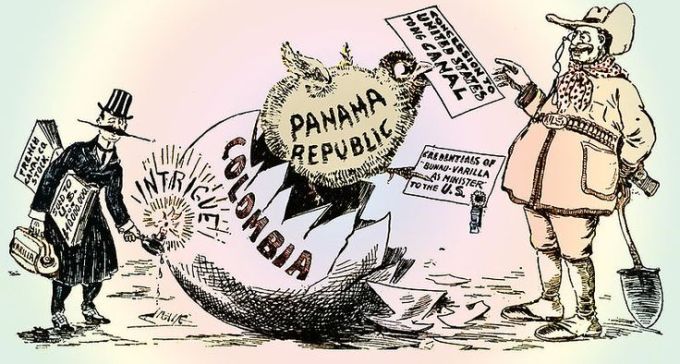Hi, my name is Madi. I enjoy taking my boat for long walks down Moccasin Creek, crushing a normally sized bag of goldfish in 24 hours, and wearing visors that grandma’s would wear golfing, to work (see photo below). And today I’m going to share with you why I’m OK with the Sprague Creek fire and why I cringe at the sound of Theodore Roosevelt’s name. 
Let’s start with Teddy. Good ole Ted. Right? Wrong. I’m generally a level headed, respectable, eager-to-hear-your-side-of-the-story-type of person. But I will never agree with you when you praise that man. Let’s start with something that happened before he was even a blip on the nation’s radar. The year is 1823 and a white man (would it have been any other way?) named John Quincy Adams is the Secretary of State. He writes the Monroe Doctrine, a policy opposing European colonialism in The Americas, starting in 1823. In it he states that any further efforts by European nations to gain control of any independent state in North or South America would be taken as “the manifestation of an unfriendly disposition towards the United States,” but he also made it clear that the U.S. would not interfere with internal European concerns and would recognize pre-existing European colonies. This doctrine came during the independence period, a time when many Latin American colonies overseen by Spain and Portugal were gaining independence or had already succeeded. Based off that definition, one would think this is a great turning point for Latin American colonies as they finally had a large world power backing them up and “protecting” them from their European powers. In reality, this was the U.S.’s way of saying ‘frick you Europe, we live closer to Latin America and we are realizing there are a shite-load of resources down there with a huge population of oppressed indigenous peoples—who we can continue to oppress—and use them for cheap (if not free) labor, continuing to exploit their resources that they have lived off for thousands of years and now, their newly formed nations.’
Are you feeling just a little bit fired up yet? If not, that’s ok, you will soon. (I’m not trying to tell you how you should be feeling…but…)
“We have to be very careful: for the Americans of the north, the only Americans are themselves,” Diego Portales, a Chilean businessman and minister wrote in 1826. This statement has rung true throughout history and continues today. Enter Roosevelt. Supporter, no, enforcer of the Monroe Doctrine. Creator of the Roosevelt Corollary to the Monroe Doctrine in 1904. Supporter of Cuban independence from Spain. Cuba’s independence in his eyes meant the Americas would be one step closer to freedom from any European dominion. In 1897 Roosevelt had been appointed Assistant Secretary of the Navy and less than one year later President McKinley declared war on Spain, launching the Spanish-American War. The outcome became the Treaty of Paris, resulting in the transfer of Cuba, Puerto Rico, Guam, and the Philippines from Spain to the U.S.—and there began the era of the U.S. as a world power.
President McKinley was shot and ultimately died from his injuries in September of 1901. Roosevelt was sworn in that same month and the years that followed would change the country forever, sending the U.S. roaring into the 20th century. There is no denying his work in conserving natural resources and his policies on protecting land and wildlife. He established the U.S. Forest Service, created five National Parks, and proclaimed 18 U.S. National Monuments. *Note on the National Parks, the first park was Yellowstone, signed into law in 1872 by President Ulysses S. Grant*
His environmental actions are what most people talk about, what they praise him for, shit, all they really know him for. But what I know him for is his foreign policy. And shoot, maybe if I had learned about his environmental policy first my opinion would be different. But I hold a degree in Latin American Studies and nothing makes my heartbeat pound in my ears and my jaw clench more than human rights violations. Especially human rights violations in Latin America. Theodore Roosevelt went so far as to call Latin America “our ugly little backyard.” Cue the Panama Canal. An exploitation of land, resources, and people. Land that didn’t matter to the self-proclaimed environmentalist because it wasn’t part of his country. It belonged to that ugly little backyard. In 1904 under Roosevelt the U.S. took over the project of building the canal from the French (that Corollary coming in hot). During construction, the U.S., not Panama, controlled the territory surrounding the canal. The U.S. also supported Panama in their separation from Colombia, mainly so they could take control of the future canal. Interestingly enough, the second man appointed as the chief engineer of project (there were three) was John Frank Stevens, the same engineer who had built the Great Northern Railroad, which traverses the southern boundary of Glacier National Park. Caribbean migrants then carried out the hard labor of building the canal, justified by none other than the Monroe Doctrine.

So what does Teddy Roosevelt have to do with the Sprague creek fire? January 1900, following the Spanish-American War and pre-presidency, Roosevelt writes a letter to Henry L. Sprague, a lawyer and politician in the Massachusetts House of Representatives. In it Roosevelt writes, “I have always been fond of the West African proverb: ‘Speak softly and carry a big stick; you will go far.” And so begins his use of Big Stick Ideology in his foreign policy, what Roosevelt described as “the exercise of intelligent forethought and of decisive action sufficiently far in advance of any likely crisis.” The Roosevelt Corollary to the Monroe Doctrine in 1904 ultimately stated that the U.S. would intervene as a last resort to ensure that other nations in the Western Hemisphere fulfilled their obligations to international creditors, and did not violate the rights of the United States or invite foreign aggression to the detriment of the entire body of American nations. While it ended up having almost nothing to do with relations between the Western Hemisphere and Europe, it did serve as Roosevelt’s justification for U.S. intervention in Cuba, Nicaragua, Haiti, and the Dominican Republic. And so continues the sticking of U.S. fingers into other countries’ business.
The Sprague Creek fire.
As of today, it has burned over 5,000 acres and claimed the Sperry Chalet; a historic chalet built in 1913 that was popular to hike into and offered shelter for the night. For humans, the loss of this historic chalet is a bummer. Many people have expressed their sadness through stories of the chalet and it had a lot of sentimental value. The past few nights I have spent time watching the fire burn, bright orbs glowing on the hillside. We’ve watched it flare up as it claims more spruce and fir trees, destroying bear, elk, moose, and wolf habitat to name a few. The area has not burned in over 100 years, and some of the trees that surrounded the chalet had been there since the 1700’s. Part of the reason for long breaks between fires is our climate-changing environment where we go from amazing droughts to epic floods. To the naked eye this looks like a healthy fire. The Edward Abbey in me comes to the surface as we watch the hills burn. I am almost happy that the fire took the chalet. It’s a reminder that no human force can stop the fury of nature. Fires in national parks are allowed to burn as long as they are not human-caused. In the case of the Sprague, it was a lightning strike so the park said, “Game on.” So as far as I am concerned every tourist who rolls through GNP in the coming days and even since the start of this fire is getting to watch first hand that nature doesn’t care if you’re a 100-year-old historic building. Nature doesn’t care if you’re a firefighter doing your best to protect the lodges and lookouts that are currently being threatened by the flames. Nature will run its course. It will be fast and furious and lash out at the creatures that have created the climate we live in today. And nature doesn’t care if you believe in climate change or not. Nature is showing you that it’s happening, it’s affecting you and everyone and everything you’ve ever cared about. And in the most aggressive way, it’s giving you the option to recognize it or continue to turn a blind eye, carrying on in destroying your own species by destroying your own habitat.
So hi, my name is Madi. I believe in climate change. And I watch my actions and how they will affect my carbon footprint on this earth. Will you join me?
This was a very interesting read. I had no idea!!
Sent from my iPhone
>